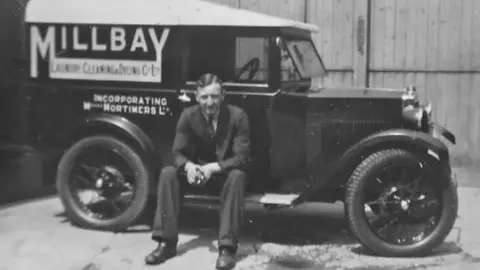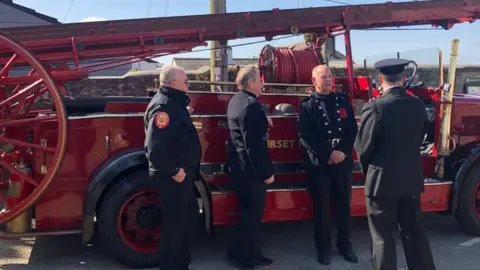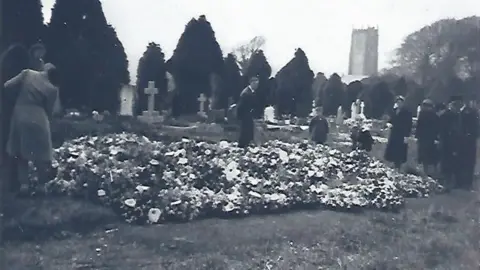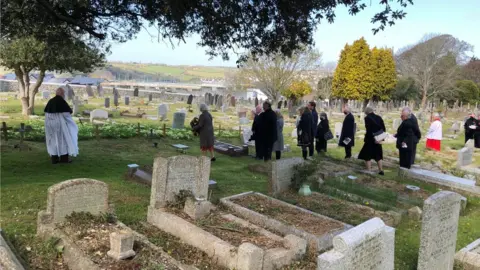Saltash firefighters who died in Blitz remembered
 Heather Roche
Heather RocheA church service has been held to mark 80 years since six volunteer firefighters were killed in the Blitz.
The men from Saltash, Cornwall, went to Plymouth to help put out the blazes from German bombing in World War Two.
They died on 22 April 1941 after their vehicle went over an unexploded bomb in Devonport.
Relatives including the niece of one of the men held a service at the Church of St Stephen, Saltash in commemoration of those who died.

Heather Roche's uncle Leslie Tibbs was a driver for Millbay Laundry in Saltash as well as a volunteer firefighter.
"They were called out because there were so many incendiary bombs being dropped it was setting the city alight," said Ms Roche.
 Barry Brooking
Barry Brooking Plymouth and its naval base had been under siege from the Luftwaffe and was still recovering from a series of attacks in March.
Ms Roche said: "They were badly equipped, but they stepped forward to take on this job.
"Later that night they hit an unexploded bomb in King Street in Devonport and they were all blown up."

The six firefighters killed on 22 April were the entire crew of the Saltash Auxiliary Fire Service.
- Francis Brooking, 44
- Stanley Crabb, 26
- Alfred Crapp, 33
- Bernard Jasper, 27
- John Stanlake, 28
- Leslie Tibbs, 31
Ms Roche's mother and father, who was Mr Tibbs' brother, talked about the tragedy often, "it was like he was part of the family growing up", she said.
Five members of Newquay's crew and another firefighter from Lostwithiel were killed in the same week.
Portland Square shelter in Plymouth was struck on 22 April with 76 people killed, the greatest loss of civilian life in the Plymouth Blitz.

The Blitz: September 1940 - May 1941
- The sustained German bombing of major British cities began towards the end of the Battle of Britain
- Hitler ordered his air force the Luftwaffe to switch its attention from RAF infrastructure to urban centres of industrial and political significance
- In the first years of the Blitz, Anderson shelter were provided by the government, and 150,000 of these were distributed to houses with gardens
- About 43,000 civilians were killed in the raids, including 1,178 in the Plymouth Blitz which began in March 1941
- The bombings petered out when Hitler began to focus on his plans to invade Russia

Follow BBC News South West on Twitter, Facebook and Instagram. Send your story ideas to [email protected].
